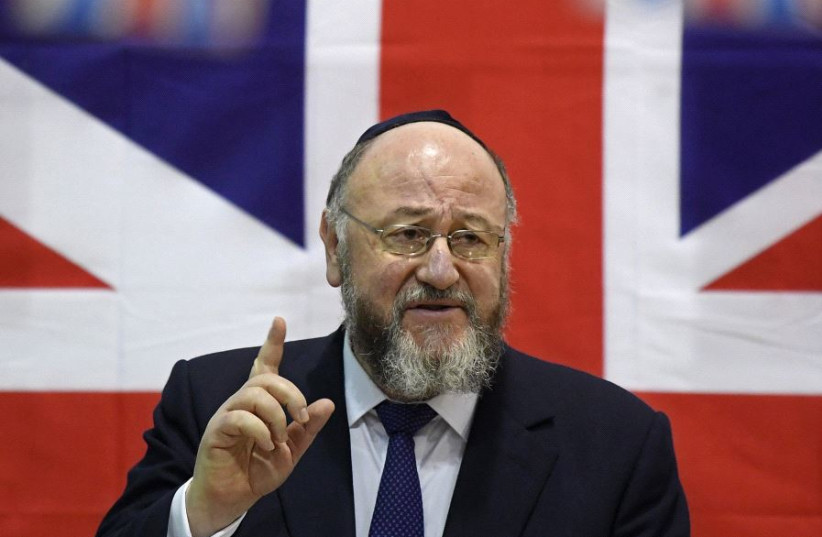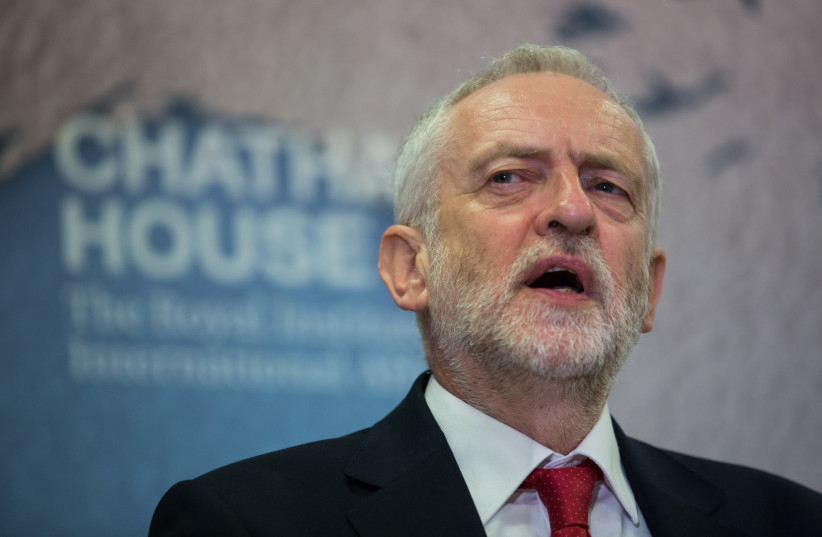Nearly half of British Jews have considered leaving the UK since October 7 due to antisemitism, according to polling data collected by the Campaign Against Antisemitism. Four out of five Jews surveyed identified as Zionists.
The polling was conducted from November 12-17 among 3,744 respondents.
Based on the CAA survey data, 69% of UK Jews agree (40% of them strongly) that they were less likely than they were before the October 7 massacre to show visible signs of their Jewishness, such as wearing a Star of David or kippah. Another 15% disagreed, and the rest did not say.
Also, since the Hamas massacre in southern Israel, almost half (48%) of respondents, including 17% who strongly agreed, affirmed that they had considered leaving the UK due to antisemitism. Just over a third (34%) disagreed.

Next, polling subjects were asked if they, or someone they knew, had experienced or witnessed an antisemitic incident since October 7.
The majority, 61%, responded in the affirmative.
Regarding with the statement, “Antisemitic hate crime is treated by the police in the same way as other forms of hate crime,” two-thirds disagreed, almost a third strongly; 16% agreed; and 18% neither agreed nor disagreed.
The overwhelming majority of respondents also agreed that they would “avoid traveling to a city center if a major anti-Israel demonstration was taking place there” (91%) and that “The Crown Prosecution Service should report statistics on prosecutions of antisemitic hate crimes” (95%).
Another 90% of respondents agreed, with 78% strongly agreeing, that the British Government should designate Hizb ut-Tahrir as a terrorist organization, thereby banning it. No one disagreed, and only 9% expressed no opinion.
According to the Counter Extremism Project, Hizb ut-Tahrir advocates the establishment of a global Muslim caliphate and presents Islamic law (Sharia) as an alternative to both capitalism and secular democracy.
In October, the Jerusalem Post reported that the group had "a history of promoting antisemitism and engaging in activities with violent inclinations."
Survey respondents were next asked about various political parties in the UK and whether or not they that they were too tolerant of antisemitism among their MPs, MEPs, councilors, members, and supporters.
UK political parties too tolerant of antisemitism?
The party British Jews felt was the most tolerant of antisemitism was the Labour Party, with 63% of respondents saying it was too tolerant of antisemitism. It was followed by SNP (47%), the Green Party (42%), the Liberal Democrats (32%), and Sinn Féin (32%). The least accommodating of antisemitism was the Reclaim Party (11%). Only 2% of respondents said that no party was too tolerant of antisemitism, and 26% said they didn’t know.
The Labour Party is the party formerly chaired by Jemery Corbyn, a figure who accrued numerous accusations of antisemitism both during and since his tenure.

In November, Corbyn accused both the IDF and Hamas of engaging in terrorism. The statement came on the heels of an interview on Piers Morgan a few days earlier when he refused to define Hamas as a terrorist organization.
UK Jews dissatisfied with BBC's coverage of Israel-Hamas war
Next, when asked if they were “satisfied with the BBC’s coverage of the Israel-Hamas crisis,” some 86% said that they weren't, including 71% who strongly felt that way. Only 4% said they were satisfied, including 1% very satisfied, and 4% didn't express an opinion either way. The remaining respondents said that they did not watch or listen to the BBC or read its website.
Regarding the statement, “I feel personally connected to events happening in Israel,” almost everyone (97%) agreed, 78% strongly; no one disagreed, and only 2% expressed no opinion.
Finally, when asked if they considered themselves to be a Zionist, four of five respondents agreed that they did, with over half of respondents, 57%, strongly agreeing. Only 6% did not agree, including 2% strongly; the remainder expressed no opinion.
